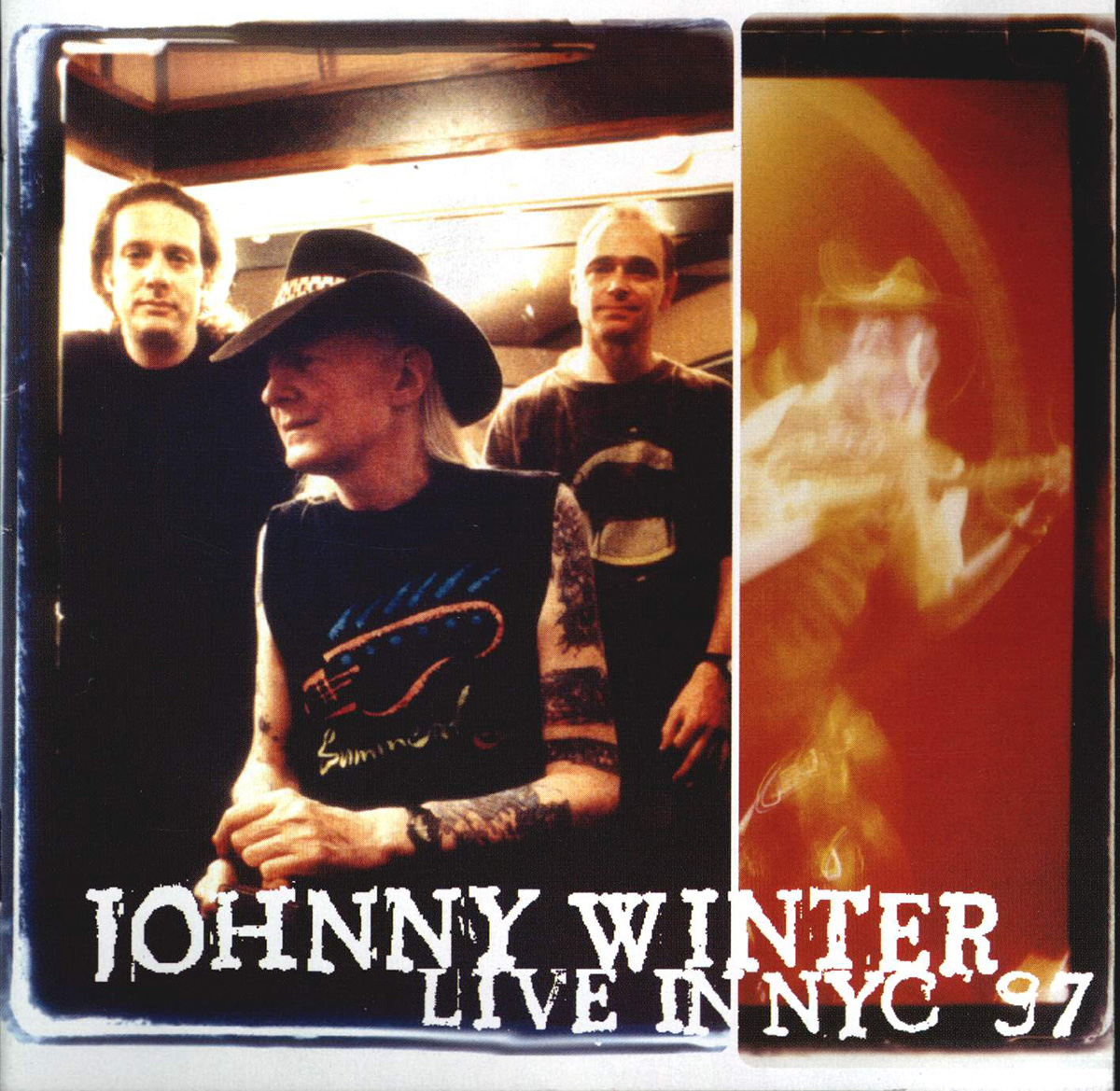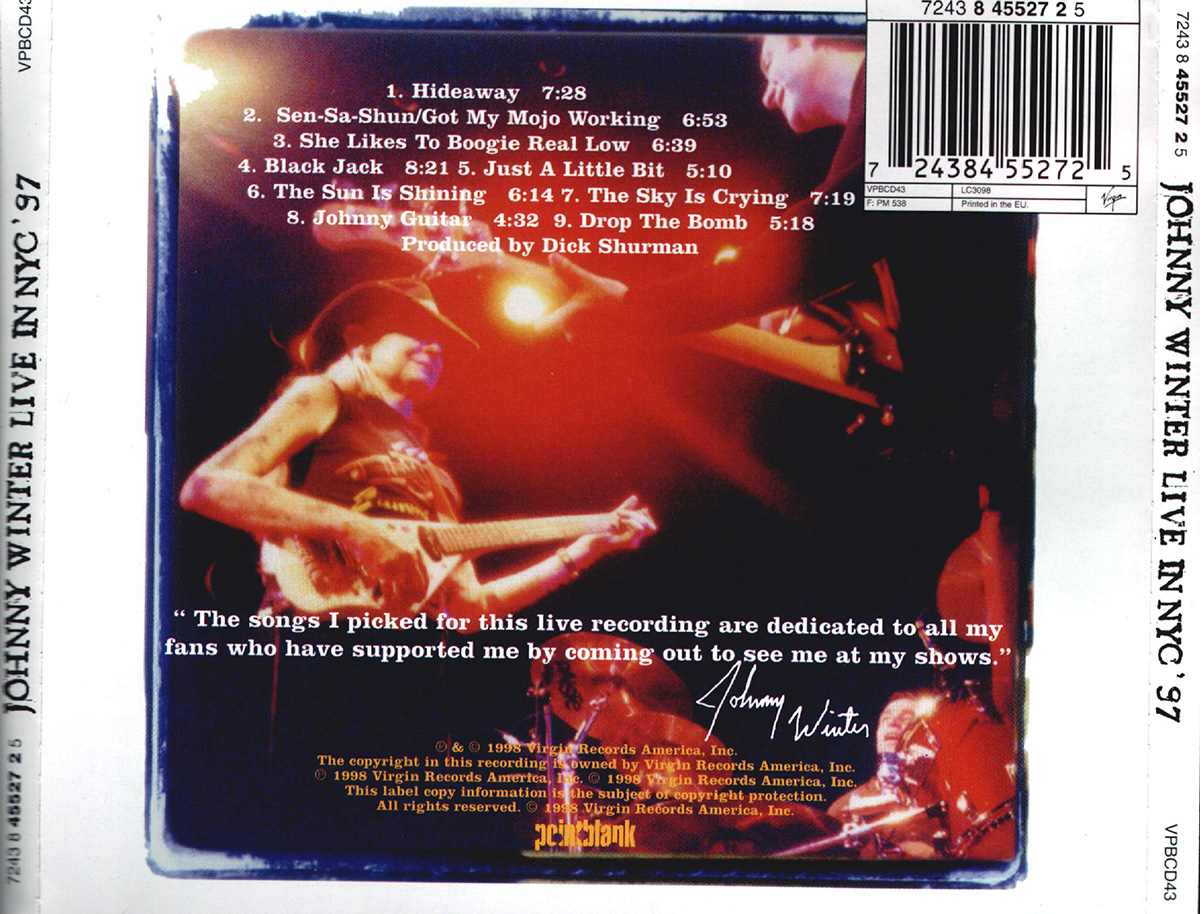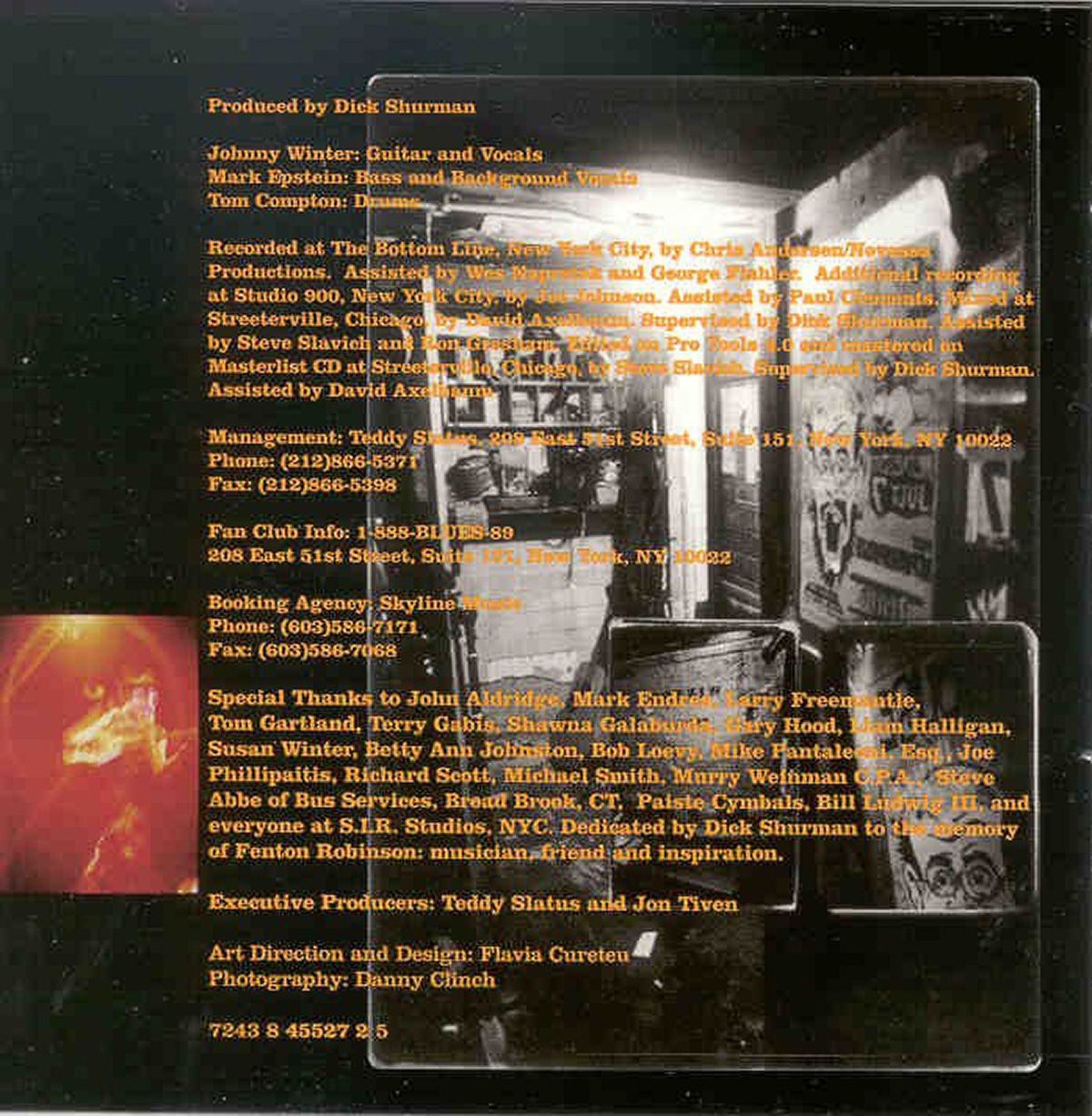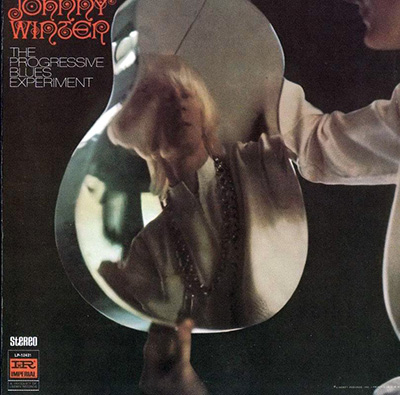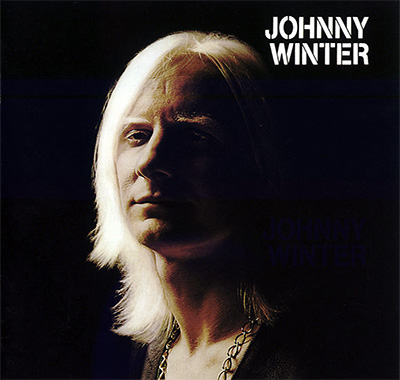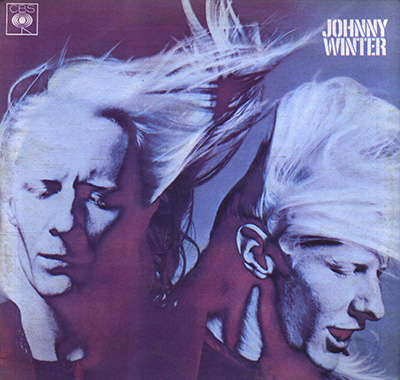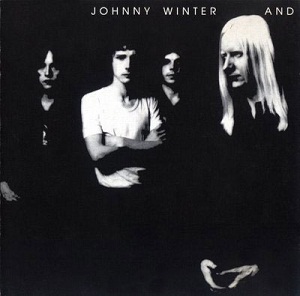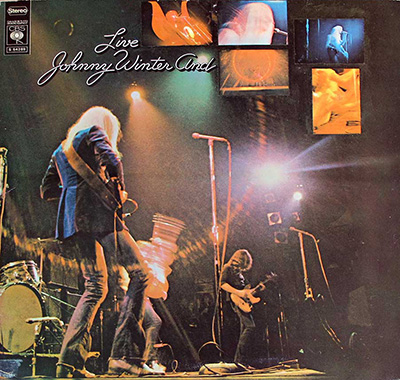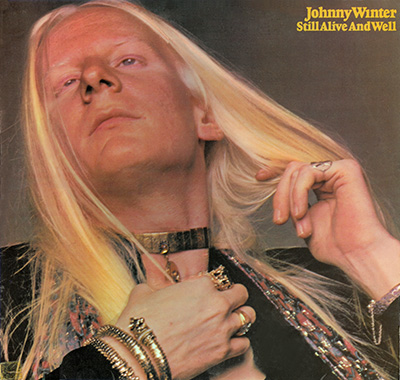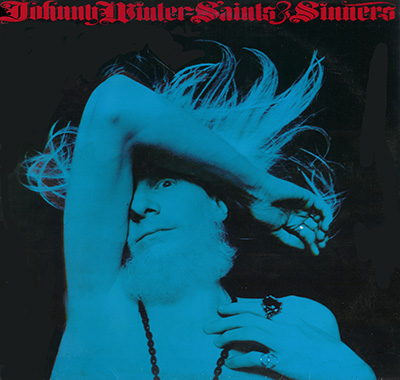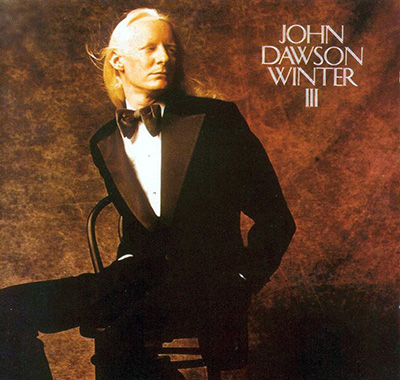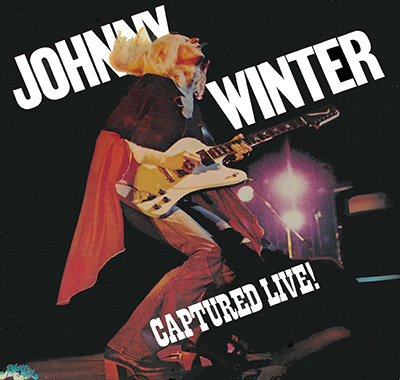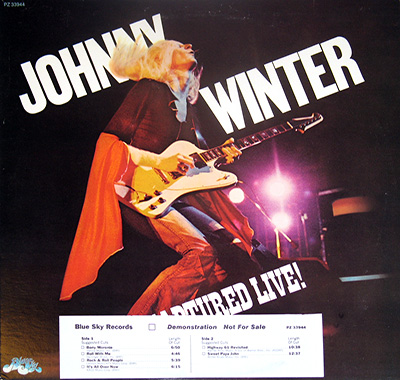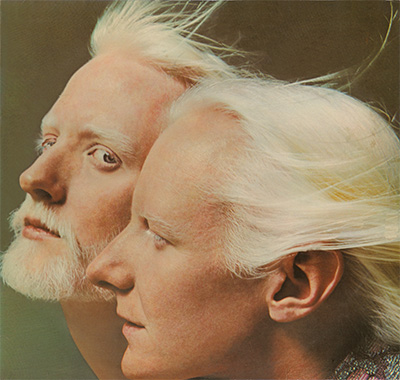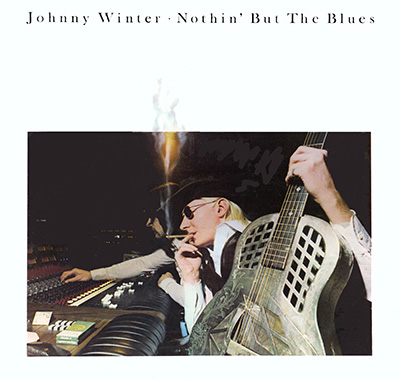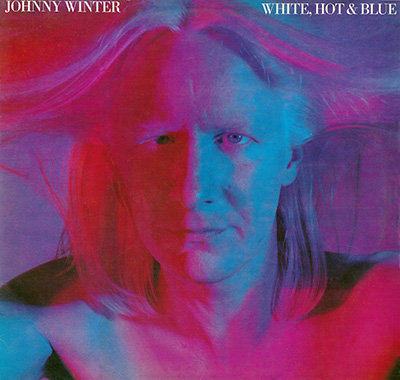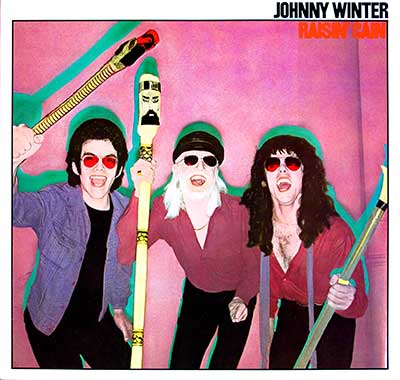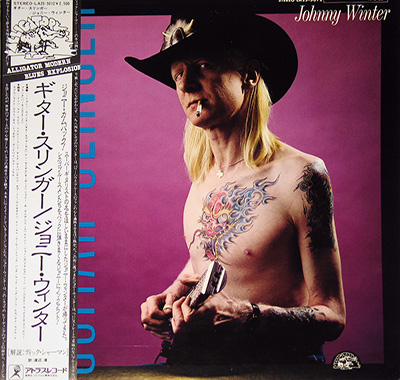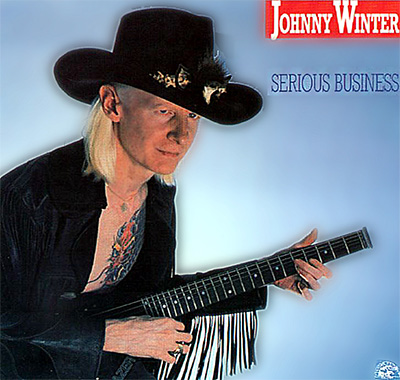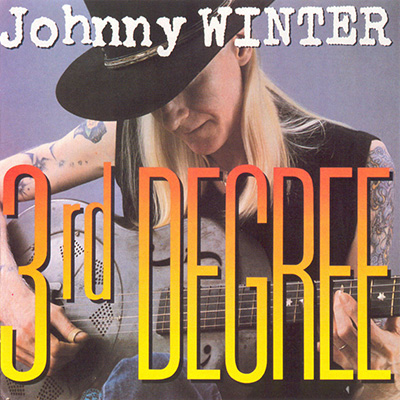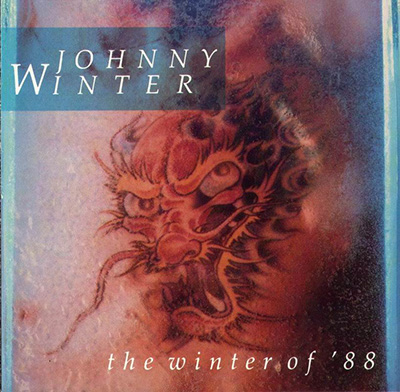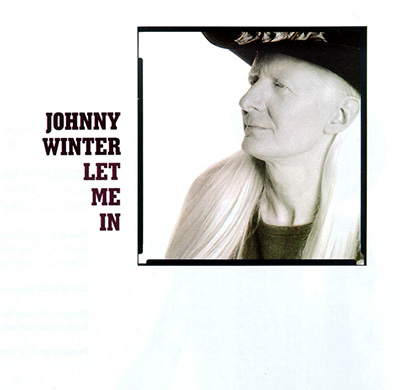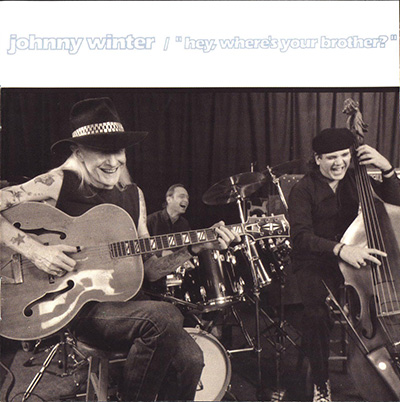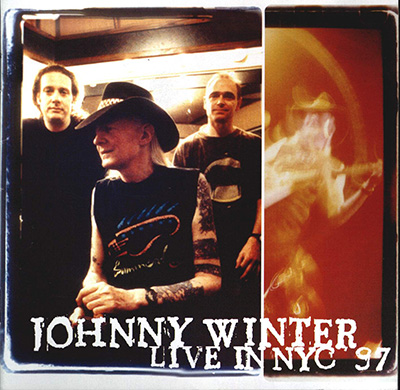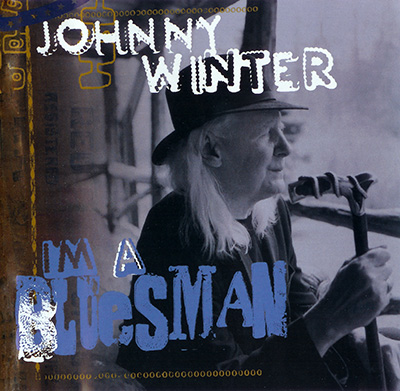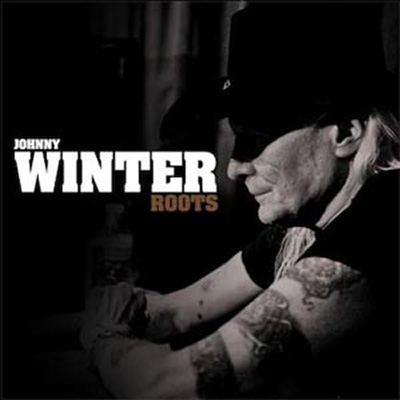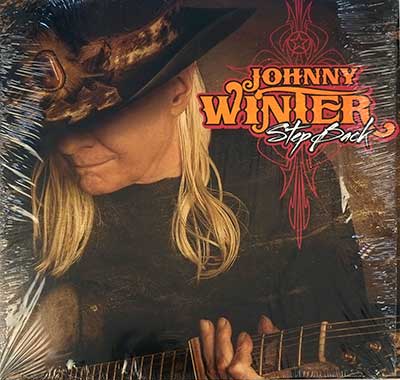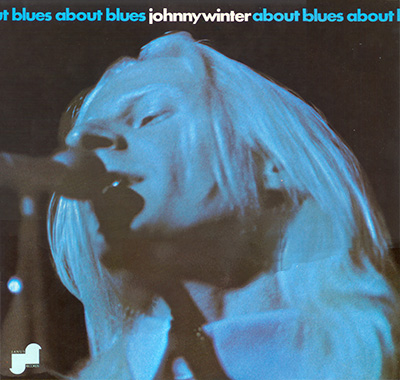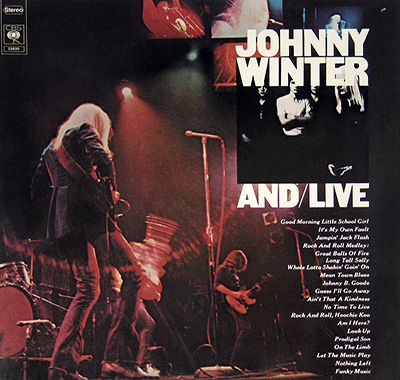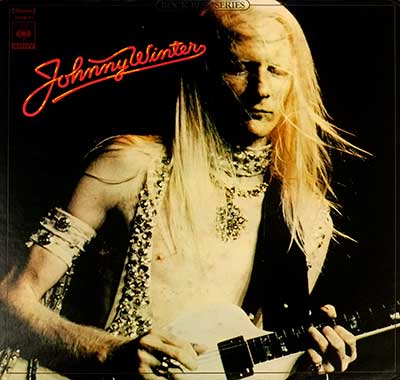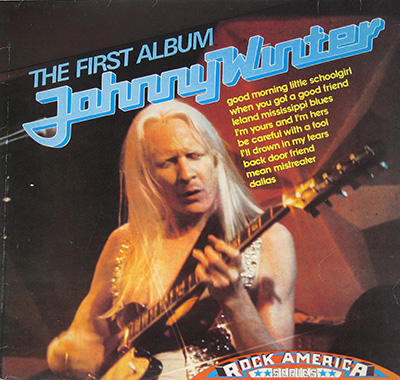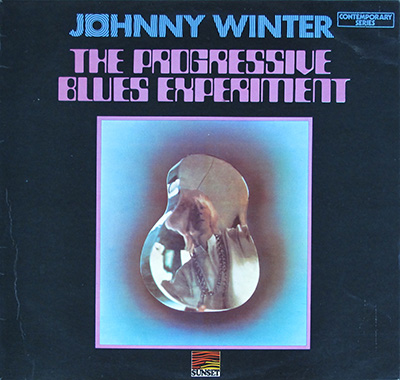Johnny Winter has been cranking out blues, rock/blues, and rock n' roll for 40 years. He played blues when it wasn't popular for white performers to do so. He often jammed with Jimi Hendrix, and worked with musicians as diverse as Rick Derringer, Muddy Waters , and his younger brother, keyboard and sax man, Edgar Winter. His scorching guitar style and usually ragged vocals are immediately identifiable, and not often copied. In fact, I don't recall ever hearing the phrase, "that guy sounds like Johnny Winter".
Breaking a five-year hiatus, Johnny Winter Live in NYC '97 showcases a set of songs Johnny says are dedicated to all his fans. While Johnny may have mellowed just a tad, and the ragged edge to his voice has smoothed somewhat, this recording is a great example of what Johnny has been doing for what seems an eternity. His playing is still crisp, acurate, powerful, and exciting. And although I never considered him to be a great singer, for some reason I always enjoy hearing him sing. There's this kind of arrogance to his voice. Kinda like he's saying, "I'm gonna sing it, and you're gonna love it".
There is a bit of everything on this CD, from rock 'n roll to slow blues, and, my personal favorite, some nasty slide guitar. In my opinion, Johnny is the meanest slide player ever, bar none. I won't go into describing the individual songs, except to say that they are all excellent, except for the last cut, The Bomb. This is one of those monotonous, repetitive songs that I just can't learn to enjoy. There just has to be a better song that could have been used to close out this otherwise excellent set. If not for that song, I would've given this CD a 5.0 rating.
Whether you are looking for your first Johnny Winter CD, or you have his entire collection, I heartily recommend this CD. It is definitely one that makes you wish you could've been there, the real test of any live recording.
I can't close this review however, without mentioning a couple of other Winter recordings. Nearly all of his recordings are great, but two stand out as must have items. Captured Live, recorded in 1976, showcases Johnny at his live best. This album is really more rock than blues, but is one of the most awesome live recordings ever. That set closes with the Johnny's own Sweet Papa John,, probably the most powerful slide blues performance you're likely to hear.
The other album is Nothin' But the Blues, recorded in 1977. This one consists primarily of acoustic, Muddy Waters influenced blues. In fact, Muddy and his band perform with Johnny on the album. Probably the closest to traditional blues Johnny ever got. There is some electric guitar, but the volume is turned down and the emphsis is on the vocals. These two albums show two extreme sides of Johnny Winter, with most of his other recordings falling somewhere between these two boundries.
ElectricBlues
Herm
